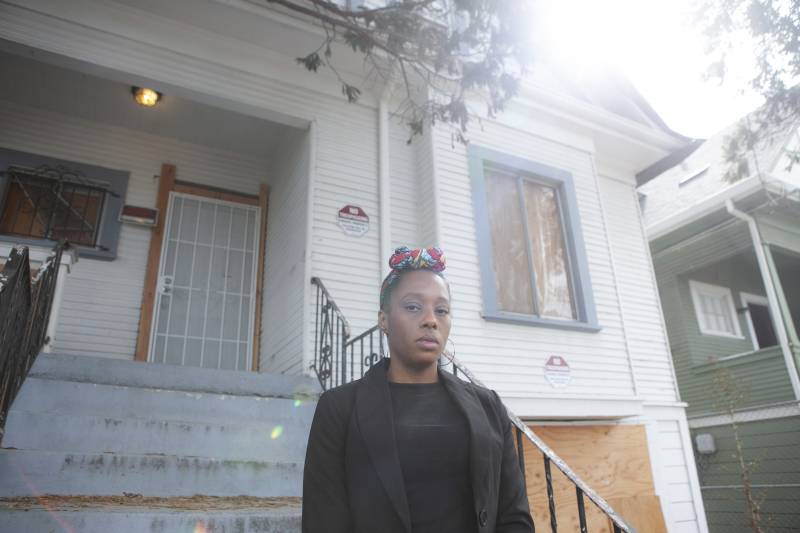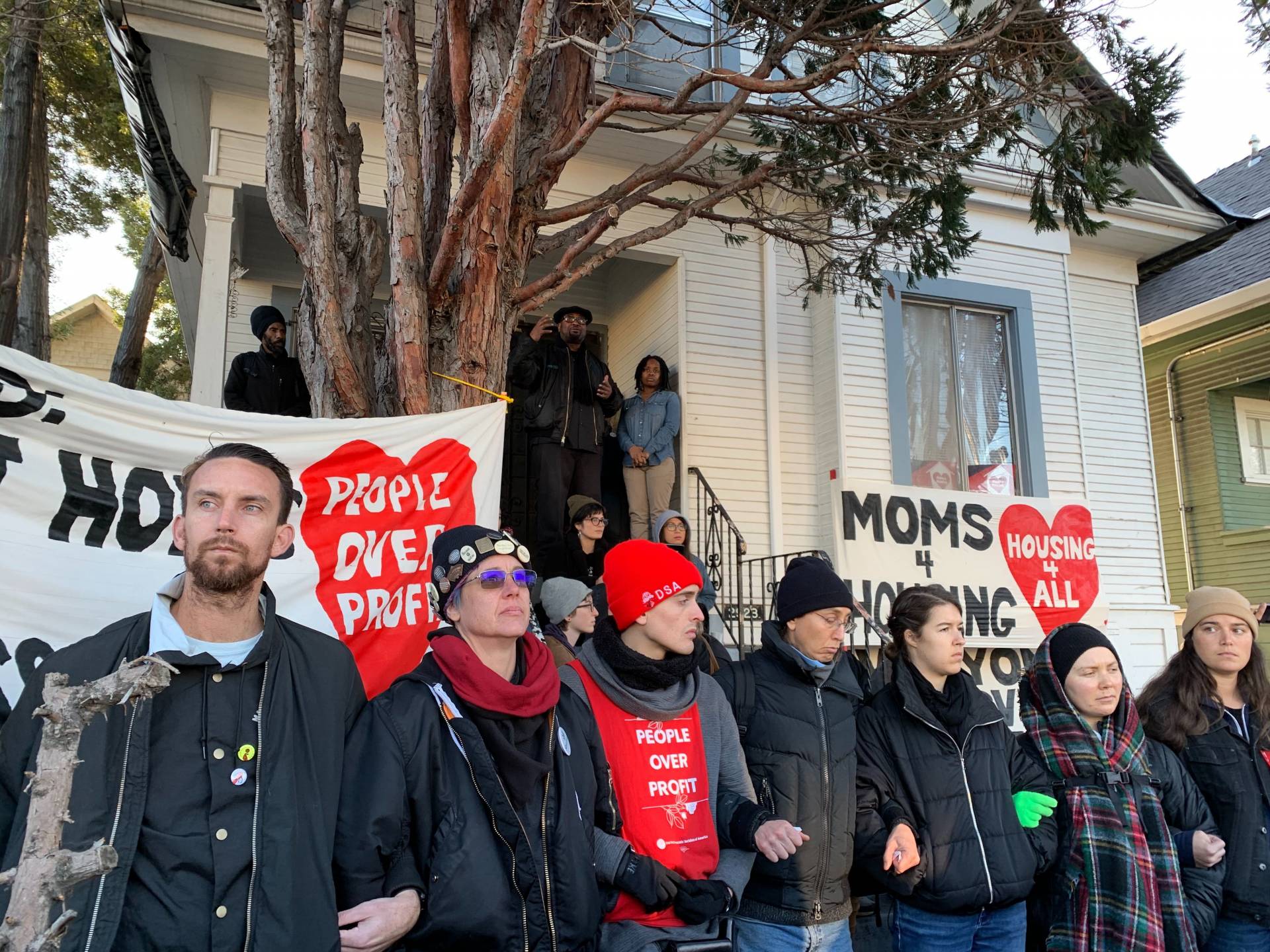Nearly a year after a group of homeless moms occupied a house in West Oakland and captured the nation’s attention with their protest against the Bay Area’s high housing costs, they came back to the home to celebrate.
On Oct. 9, Moms 4 Housing announced the home would soon become transitional housing for other homeless mothers, with services on-site to help with jobs, credit readiness and permanent housing.
“This is officially moms’ house,” said Dominique Walker, one of the moms who occupied the home.
She said the date marked her son’s second birthday.
“He took his first steps in this house,” she said. “And it’s so important for our children to have that space to pull up and begin to take their first steps.”
But it was only the first step for the moms’ movement. The women — all Black, working mothers — became a symbol of the Bay Area’s housing crisis. And their rallying cry, “housing is a human right,” added fuel to an already simmering fire among activists, who are demanding a different vision for housing in this country.
KQED’s new podcast SOLD OUT: Rethinking Housing in America looks at what it would actually mean to make housing a human right. Listen to episode five below. Read the transcript.

